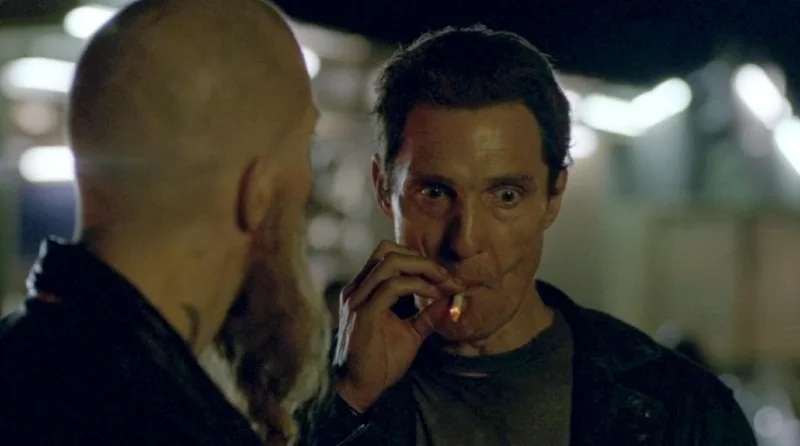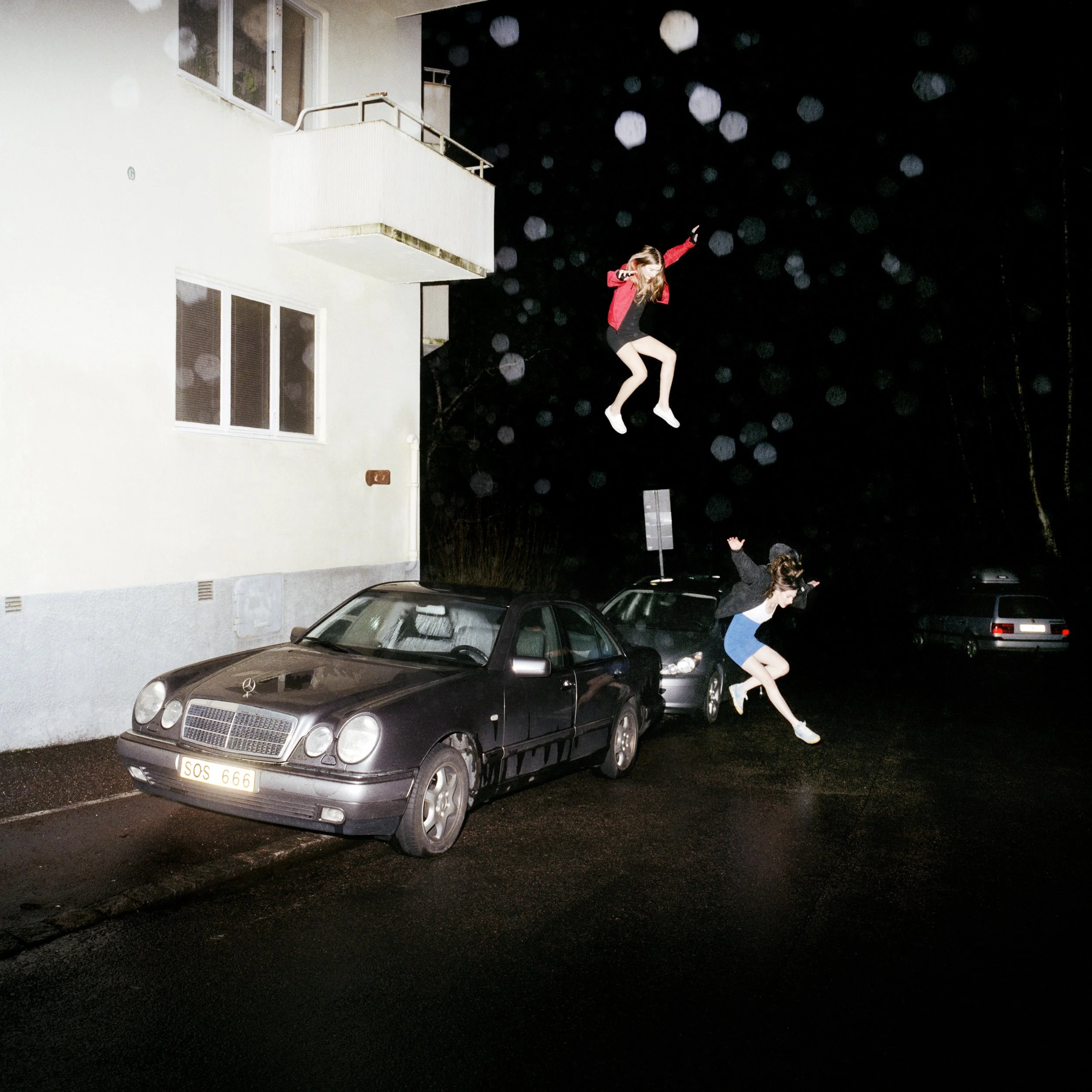Understanding True Detective, Season One
Listen, I've talked about True Detective at lengths already. I love the show perhaps more than it deserves to be and I was the first happy to learn it was probably coming back. So, I revisited Season One and Two in order to celebrate this great news and now, I have more things to say about it.
Consider this an enhanced review of a show I came to know better than most. Today, I'm going to discuss Season One, why it was such a raving success and why it was so criticized, too. True Detective was a pretty divisive show, which is something that always baffled me. Are you ready so debate some more True Detective, guys? Because here I am.
Oh, and spoilers!
What True Detective, Season One did right
Performances
Of course, Matthew McConaughey's performance was superb. No one will debate that Rust Cohle singlehandedly relaunched his career. Rust was the de facto protagonist of True Detective, though and McConaughey was handed the best lines on a silver platter. It was not difficult for a talented actor to shine in such a well-written part. But part of what makes him such a compelling character has nothing to do with McCounaughey's performance. It has to do with Woody Harrelson, Michelle Monaghan and atypical narrative structure.
The entire point of Marty Hart's family subplot is to lead Rust into a crisis in order to overcome his nihilism. His daughter passed in a tragic accident years prior, his marriage disintegrated soon afterwards, so he took refuge in work, isolation and pessimist philosophical texts. But here comes his new partner Marty, wagging his perfect domestic life under his nose. Michelle Monaghan's character Maggie reflects the loss he refused to confront and Marty's the idiot who can't handle such a blissful existence. Harrelson and Monaghan both understand they need to play off McConaughey, which makes Rust Cohle an even richer character.
Attention to detail
Ever wondered why just watching True Detective felt more rewarding than other shows? That unspeakable satisfying feeling you can't quite put in words? Part of it is born from Nic Pizzolatto, Cary Fukunaga and T Bone Burnett's crazy attention to detail. True Detective bothers with details other shows don't even acknowledge. For example, Pizzolatto says in the DVD commentaries that he and Fukunaga established visual parallels between Louisiana and Vietnam in order to mirror the stories of Rust Cohle's dad. I think Rust says once or twice that his dad was is Nam, but the parallels are there and stunning.
The most spectacular scene is in The Secret Fate of All Life, where Rust and Marty bust into Reggie and DeWall Ledoux's meth compound. There are trip wires, landmines, the scene is deliberately oversaturated, the forest looks suspiciously like a jungle, etc. Who the fuck else can layer a narrative with such an abstract psychological layer and get away with it? The ramifications of this decision open up endless interpretation possibilities. It reminded me of Tyler Durden's quote in Fight Club: "We have no Great War. No Great Depression. Our Great War's a spiritual war... our Great Depression is our lives."
Another crazy detail was the part music played in True Detective. I mean, sure, T Bone Burnett has been endlessly praised, but it's purpose has been slightly misunderstood. Burnett says in the DVD comments that he used music to instill a signature pace to the show. His use of drums is particularly haunting. Bold, almost ritualistic drums are in most of Season One's song, but they also follow the action scene to scene, keeping us under a spell. True Detective is a multifaceted work of art. Nic Pizzolatto, Cary Fukunaga and T Bone Burnett each were crucial to its success.
Storytelling
True Detective is essentially a police procedural. The inclusion of various genre elements is what makes it stand out from the avalanche of procedurals on television. The cosmic horror elements of True Detective freaked out the audiences during its original television run and sparked endless conspiracy theories: why did Marty's daughter reenacted a gang rape with her toys? Was there a hidden meaning to Reverend Tuttle and Pastor Theriot's religious parables? True Detective never really made it clear what kind of threat Rust and Marty were dealing with, which kept the audiences transfixed for the duration of the show. Oh, and the unknown threat is another horror trope Pizzolatto used out of context to great success.
Another genre True Detective seamlessly blended into the fabric of its storytelling is Western, a genre that is long-forgotten in popular culture. That is why it works so well. There's the stranger running from his past and looking to redeem himself (Rust), the institutional powers that don't believe in him, places where the law of men can't reach, there's even a great high noon confrontation at the end. Lots of shows are trying to blend genres and do it clumsily. They place a hardboiled protagonist on a spaceship for example. Or put some fucking vampires in a detective show. True Detective knows what it is and never delves away from it. It uses tropes from other genres out of context to subvert your expectations, keep you guessing and make its universe richer. And it works!
What True Detective, Season One did wrong
Plagiarism
Well, this is unfortunate and well-documented. Nic Pizzolatto lifed many of Rust Cohle's philosophical digressions verbatim from Thomas Ligotti's The Conspiracy Against the Human Race, which is something I verified for myself *. I don't know why the show didn't bother paraphrasing or just subtly acknowledge the source material (having a Rust reading a Ligotti book, for example). And Pizzolatto was pretty arrogant and dismissive about it on the DVD extras. In a conversation with T Bone Burnett, the latter is showering him in compliments about the ending scene of Season One. Burnett says it reminded him of a novel, that it was such a poetic end note. Pizzolatto took it all in without acknowledging once he lifted the dialogue from Alan Moore.
C'mon Nic. Thought the internet wouldn't find out?
I don't want to dwell on this because it has been debated to death already, but it is unfortunate because True Detective didn't need to plagiarize in order to be great. Mr. Robot is another show that "borrows" from established pop culture material and never shied away from claiming its influences. Wouldn't it have been much simpler? There is no shame in intertextuality. It's a rewarding practice for the audience if you bother being freakin' honest about it.
Nothing else, really
True Detective suffered from a lot of unfair criticism. The worst of it came after the original airing of the finale, which critics and audiences alike felt it underdelivered. Did it? Maybe a little. I don't have anything against the idea that there were no cosmic threats after all, but the fact that everyone involved with the circle of satanic child abuse (now, THAT'S evil) was dead except for one guy at the end was...a little cheap? Otherwise, I thought the finale delivered visual trips and the necessary emotional conclusion in order for me to be happy with it and move on to something else.
Sure, it could've been better. But everything could be better, right? This is why people get behind a keyboard and start writing stories. They're initially inspired, but slightly underwhelmed by something. Then, they go to work and try to do it better.
And you? What did you think of True Detective, Season One? Did you like it? Did you hate it? Why did you think it stood out? Hit me up here or on Facebook!
* If you read this review, you'll notice I was struggling with the idea at the time, but what True Detective did is legally plagiarism. And they did it again in Season Two.








